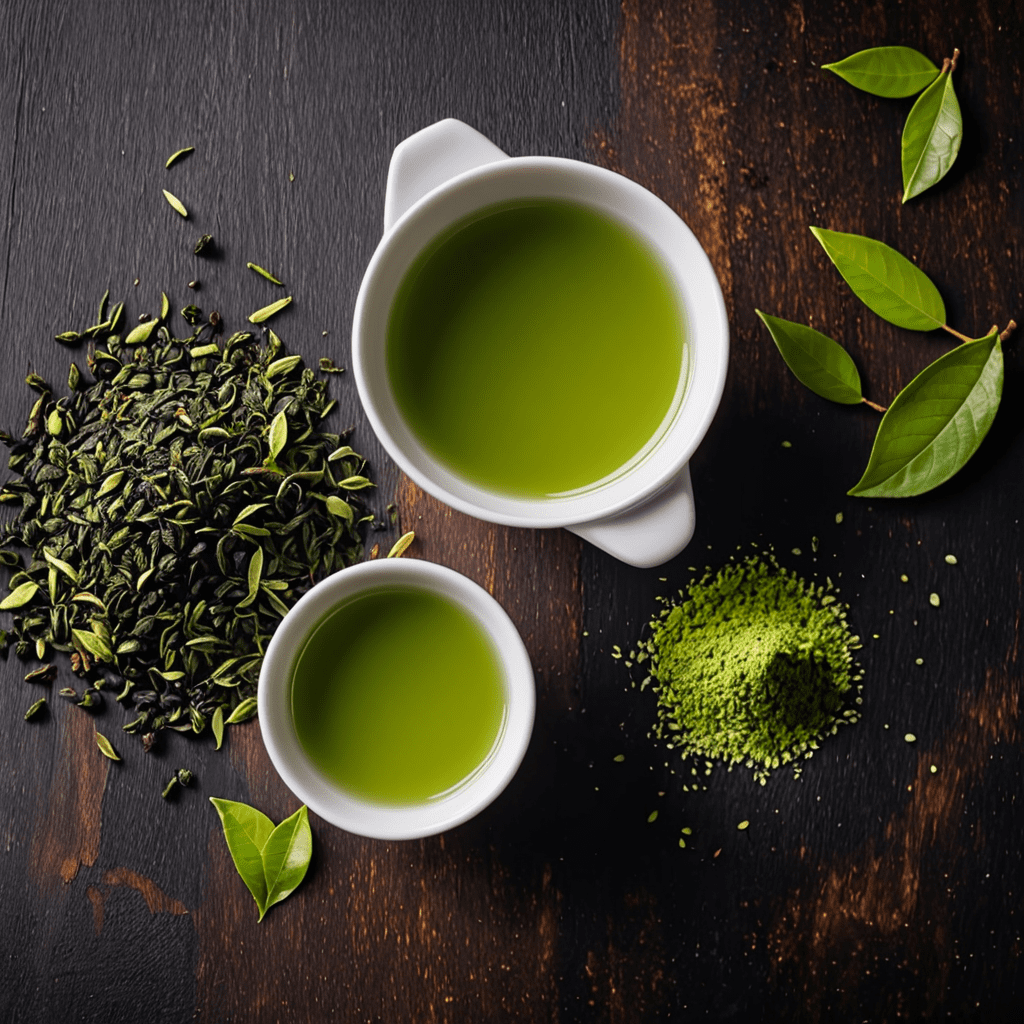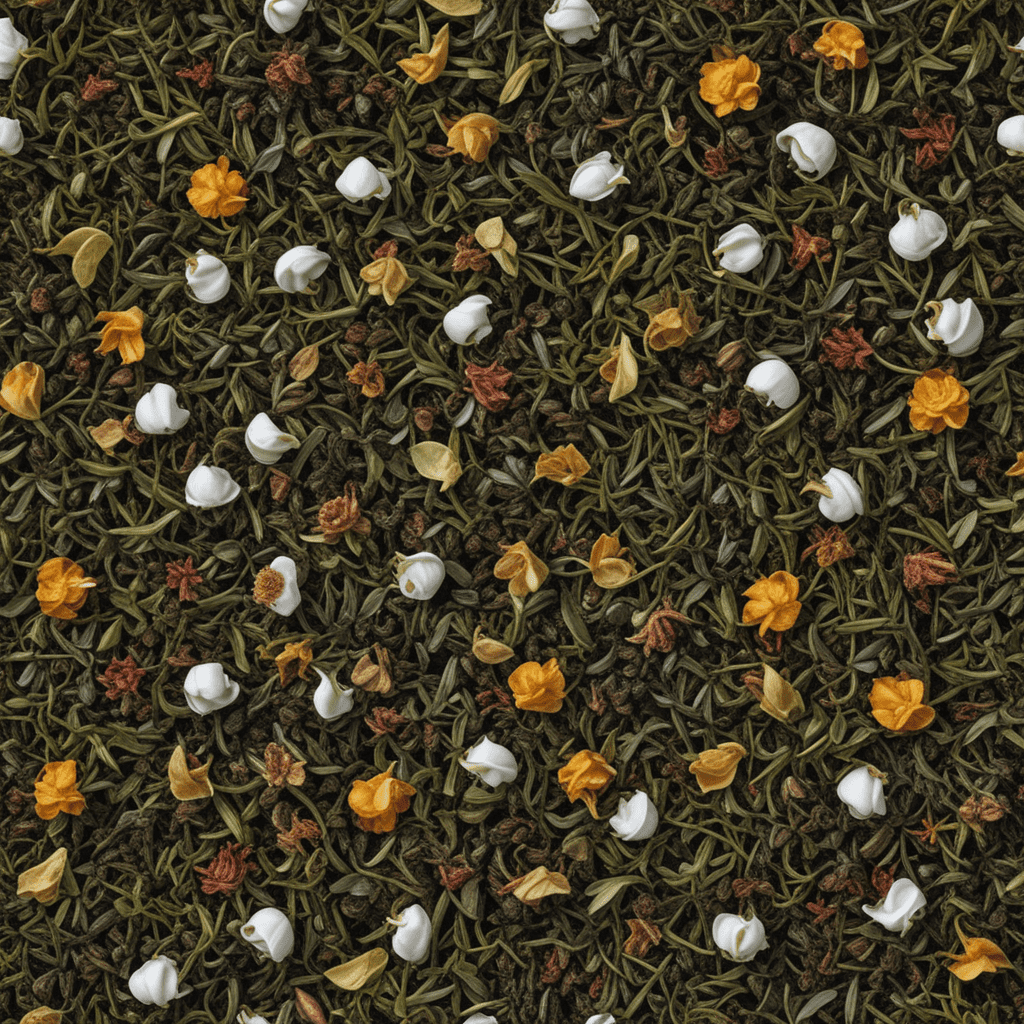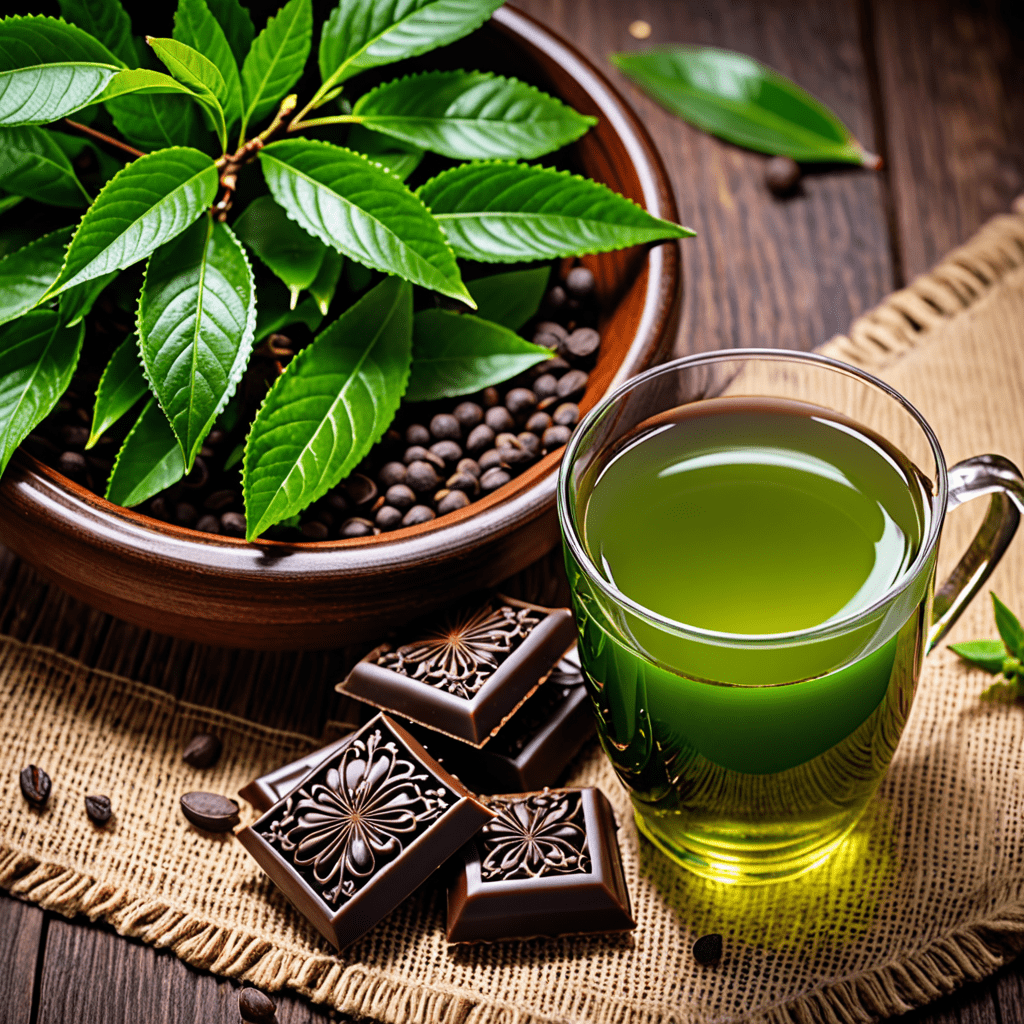
The Green Tea vs Matcha Debate: Unearthing the Distinctions
Understanding Green Tea
Green tea is a type of tea that is made from the Camellia sinensis plant. It is unoxidized, and its leaves undergo minimal processing, allowing them to retain their natural green color.
Exploring Matcha
Matcha is a type of powdered green tea that is made from finely ground green tea leaves. The process of making matcha involves covering the tea plants with shade cloths before they are harvested, which enhances the flavor and texture.
Processing Differences
The key difference between green tea and matcha lies in their processing. Green tea leaves are steeped in hot water, and the leaves are discarded after brewing. In contrast, matcha powder is whisked into water or milk, and the entire leaf is consumed.
Flavor and Texture
Green tea typically has a delicate and slightly astringent taste, while matcha offers a rich, umami flavor with a creamy texture. Matcha’s flavor profile is often described as vegetal, with sweet undertones.
Caffeine Content
In terms of caffeine content, matcha contains higher levels compared to green tea. This is because when you consume matcha, you are ingesting the entire leaf, whereas with green tea, you only drink the infused water.
The Nutritional Aspect
When it comes to nutritional content, matcha is known to have higher levels of antioxidants and amino acids, including the powerful catechin EGCG, due to the consumption of the whole leaf. However, green tea still retains its own set of health benefits and antioxidants.
Cultural and Ceremonial Significance
Matcha holds special cultural and ceremonial significance in Japan, where it is used in traditional tea ceremonies. The preparation and consumption of matcha are deeply rooted in Japanese culture and history.
FAQ
Frequently Asked Questions
1. Which one is better for a caffeine boost, green tea or matcha?
Matcha is generally considered to provide a more potent and sustained caffeine boost compared to green tea due to the consumption of the whole leaf. However, individual caffeine sensitivity may vary.
2. Are the health benefits of green tea and matcha significantly different?
While matcha is known to have higher levels of certain nutrients and antioxidants due to the consumption of the whole leaf, green tea still offers its own array of health benefits and remains a healthy beverage choice.
3. Can green tea be used in the same way as matcha in recipes?
Green tea and matcha have distinct flavor profiles and textures, so while they can sometimes be used interchangeably in recipes, it may alter the intended taste and texture of the dish.


